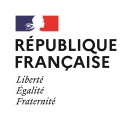Agence France Trésor (AFT) has just released a new assessment report dedicated to the environmental impact of renewable energy subsidies, as part of its monitoring of expenditure funded by the Green OATs.
Since 2021, public support for renewable energies has formed part of the eligible green expenditure envelope, of which it represented 32% that year. Since 2022, rising energy prices have mechanically reduced these subsidies to zero.
The study published today highlights the importance of renewable energies in the fight against climate change.
The new report provides a comprehensive analysis of the climate and environmental impact of renewable electricity generated in mainland France and its overseas territories. In particular, it quantifies avoided greenhouse gas emissions, which represent the equivalent of 4.5% of the country's total carbon footprint for 2019, or 28 MtCO2eq out of 605 MtCO2eq.
Manuel Pulgar-Vidal, Head of Climate and Energy at WWF International and Chairman of the Green OAT Evaluation Council, welcomed the outcome of this work: "In addition to the significant climatic effects of renewable energies, the analysis is innovative in that it does not fail to include other relevant impacts: effects on biodiversity, use of raw materials, or reduction of pollution".
Antoine Deruennes, Chief Executive Officer of Agence France Trésor, added: "Supporting the development of renewable energies through green OATs has a tangible impact on the fight against climate change. This comprehensive new report is a further contribution to raising transparency standards in the green bond market. »
This report, produced by Artelys, has been supervised by the Green OATs Evaluation Council, which gather independent experts in the fields of green finance and environmental policy.
Background
On 24 January 2017, AFT launched the first green sovereign bond (Green OAT) in benchmark size (initially €7 billion): the OAT 1.75% 25 June 2039. In doing so, it confirmed France’s leading role in meeting the ambitions set out in the Paris Climate Agreement of December 2015. In addition, on 16 March 2021, AFT launched a second Green OAT through syndication: the OAT 0.50% 25 June 2044, governed by the same framework document as the first. These two securities have been tapped since their inaugural issue and now have outstandings of €32.9 billion and €22.3 billion respectively. Finally, on 25th May 2022, AFT launched a Green OAT linked on the Eurozone inflation, the OAT€I 2038, with a nominal amount outstanding of €6.7 billion at the end of 2023. The total outstanding amount of these three green securities is therefore currently €61.9 billion. These issuances are used to fund eligible green expenditure, contributing to France’s environmental and climate policy.
This green expenditure must meet one of the four objectives of the Green OATs: i) combatting climate change, ii) adapting to climate change, iii) protecting biodiversity and iv) reducing pollution. To meet these objectives, the programmes funded by the Green OAT belong to six main sectors: building, energy, transport, living resources, pollution and adaptation.
When the first Green OAT was initially issued, the French government made a commitment to report on the environmental impact of this expenditure, which helps to set high standards within this market. The process for conducting these impact assessments is supervised by the Green OATs Evaluation Council.
Chaired by Manuel Pulgar-Vidal, former Minister of the Environment of Peru, President of COP20 and the Global Leader of Climate & Energy at WWF, the Green OATs Evaluation Council is currently composed of six other independent experts:
- Mats Andersson, Vice-Chair of the Global Challenges Foundation, Chair of the Portfolio Decarbonization Coalition and former CEO of AP4, Sweden’s fourth national pension fund
- Nathalie Girouard, Head of Division for Environmental Performance and Information in the OECD Environment Directorate
- Mike Holland, independent consultant
- Karin Kemper, former Global Director for Environment, Natural Resources and Blue Economy at the World Bank
- Rana Roy, independent consultant
- Thomas Sterner, professor of environmental economics at the University of Gothenburg
In addition to this list, there are two observers:
- Sean Kidney, co-founder and CEO of the Climate Bonds Initiative
- Nicholas Pfaff, Senior Director of Market Practice and Regulatory Policy at the International Capital Market Association
The Green OATs Evaluation Council defines the terms of reference and the programming of the environmental impact assessment reports for eligible green expenditure funded by the French Green OATs. It also gives its opinion on the quality of the impact assessment reports and the relevance of the results. All of these documents are published on the AFT website. The Secretariat of the Evaluation Council is provided jointly by the CGDD and the Directorate General of the Treasury.
Documents
Impact Assessment Report on renewable energy subsidies
Council’s opinion on the Impact Assessment Report on renewable energy subsidies
Terms of reference of the Report on renewable energy subsidies
Contact :
01.40.04.15.50 – contact@aft.gouv.fr

